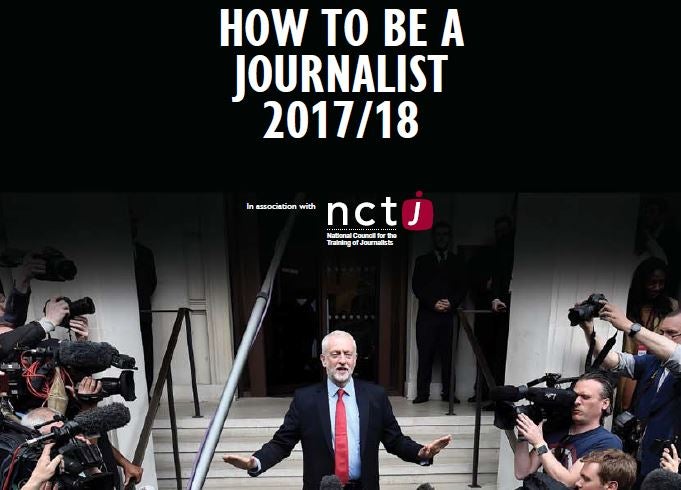
“How do I become a journalist?”
Despite the many challenges our industry faces it’s a question I often get asked.
The answer is reasonably straight forward:
- Get a qualification which is recognised by the National Council for the Training of Journalists (or which is of an equivalent standard)
- Get as much work experience as you can manage
- Then start applying for jobs making sure your CV is clear, your cover letter is a snappy little story about yourself and you exude enthusiasm, ideas and knowledge of the news outlet you are applying to if you make it into an interview.
If you can achieve all these things (and, importantly, you really do want to become a journalist) you will get there.
But on the way there are a huge number of questions to be answered. And Press Gazette’s “How To Be a Journalist” guide for 2017/18 seeks to fill in some of the gaps, such as:
- Should you choose a degree in journalism, post-graduate qualification or perhaps go down the apprentice or post-18 route?
- What are the new skills you should focus on getting?
- What do editors look for?
- How did young journalists get their break?
It is produced in association with the National Council for the Training of Journalists and includes a complete directory of the courses they accredit.
It also includes words of wisdom from…
Sky Sports News editor Andy Cairns: “It’s such an exciting job. If you’re curious about the world, interested in people, thrive working under pressure, then journalism is fun and fulfilling.”
Bournemouth Echo editor Andy Martin: “Local newspaper journalism is about holding power to account, making trouble, doing good things and giving people a voice.”
Financial Times head of digital delivery Robin Kwong: “The fundamentals of what is needed to be a journalist remains the same now as when I first started: The curiosity to ask questions and be interested in the world, the creativity to find a good way to tell the story and the integrity to ensure that it is done in the service of truth rather than personal gain.”
How to be a Journalist 2017/18 has been posted to every sixth form and university careers library in the UK (4,000 copies).
If you would like order additional copies contact the NCTJ: sarah.kenny@nctj.com. You can read the online magazine below and download a complete pdf.
Download How to be a Journalist 2017/18 complete pdf
Email pged@pressgazette.co.uk to point out mistakes, provide story tips or send in a letter for publication on our "Letters Page" blog
